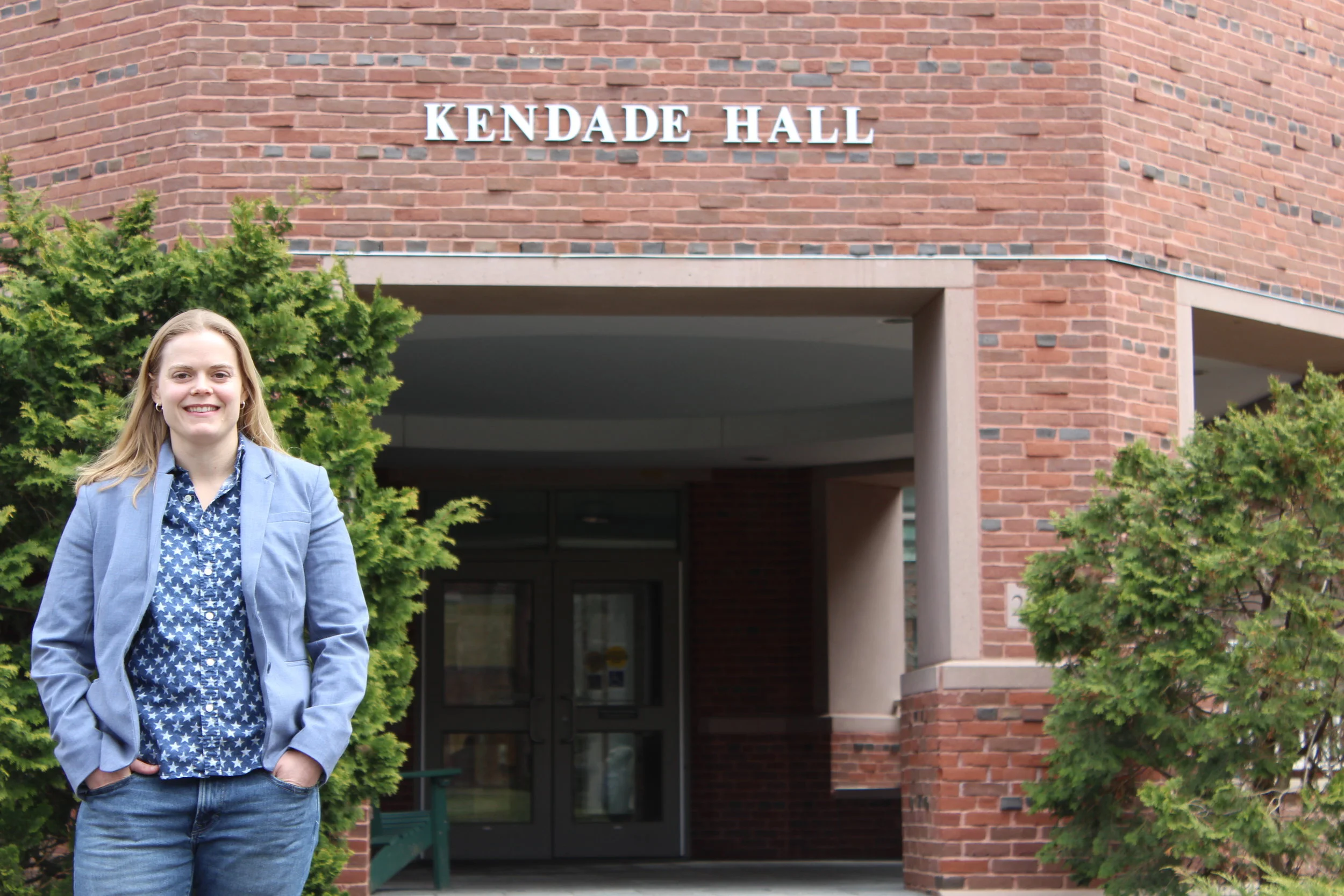Photo by Izzy Burgess ’19
BY SABRINA EDWARDS ’20
Physics professor Kerstin Nordstrom was recently awarded a Cottrell Scholar Award from the Research Corporation for Science Advancement to further her educational and lab-based goals, specifically her work on granular flows.
The award is presented to early career faculty at various universities who submit project proposals detailing three-year research projects. The proposals must contain the research project as well as an educational component. The research is reviewed by peers in the field of study while the educational program is evaluated by education specialists.
Nordstrom’s lab studies the flow of particles whose movement can’t be explained by the laws governing crystalline-structured solids.
“Almost everything we have around us is a disordered material — all of these kinds of materials are usually called ‘soft’ materials… we can easily mechanically deform them,” she explained. “The weird thing is, we don’t understand how these materials behave that well. There are engineers that study specific kinds of materials and come up with rules of thumb for how they behave so they can design systems, but there’s no good, first principles’ predictive model to understand why they do what they do.”
This research has applications in physics and also in pedestrian egress, blood clot prediction and any other system where large groups of particles are moving through a small opening.
As for the educational component of her proposal, Nordstrom proposed a “pre-college program” which is currently in development. “The basic proposal is to have a short, but multi-day pre-college program for students that don’t necessarily have to be interested in being a physics major, but they have to have at least some interest in physics or engineering,” said Nordstrom.
“In the event of multiple candidates, we want to try and ensure a very diverse cohort,” she explained. “During this program they will work one-on-one with several faculty members. They’ll be doing several lab-based projects in the afternoons. In the mornings, there’ll generally be some kind of lecture or skills-oriented workshops, like ‘how does one become a scientist,’ ‘how does one navigate college,’ things like that. The idea is that a lot of people come to college that are interested in STEM, but don’t know much about it … This is a chance to help them dive in a little bit before college actually starts.”
Nordstrom has been teaching at Mount Holyoke since 2014 when she was appointed a Clare Booth Luce Assistant professor in the physics department. She teaches various courses in the department and inspires students to pursue physics at the end of her classes.
“[Professor Nordstrom] taught my Intro Physics class and then she became my advisor when I declared a physics major,” said Ashley Cavanagh ’19. “She’s a really great professor — she always went out of her way to make sure everyone in the class was succeeding.”

